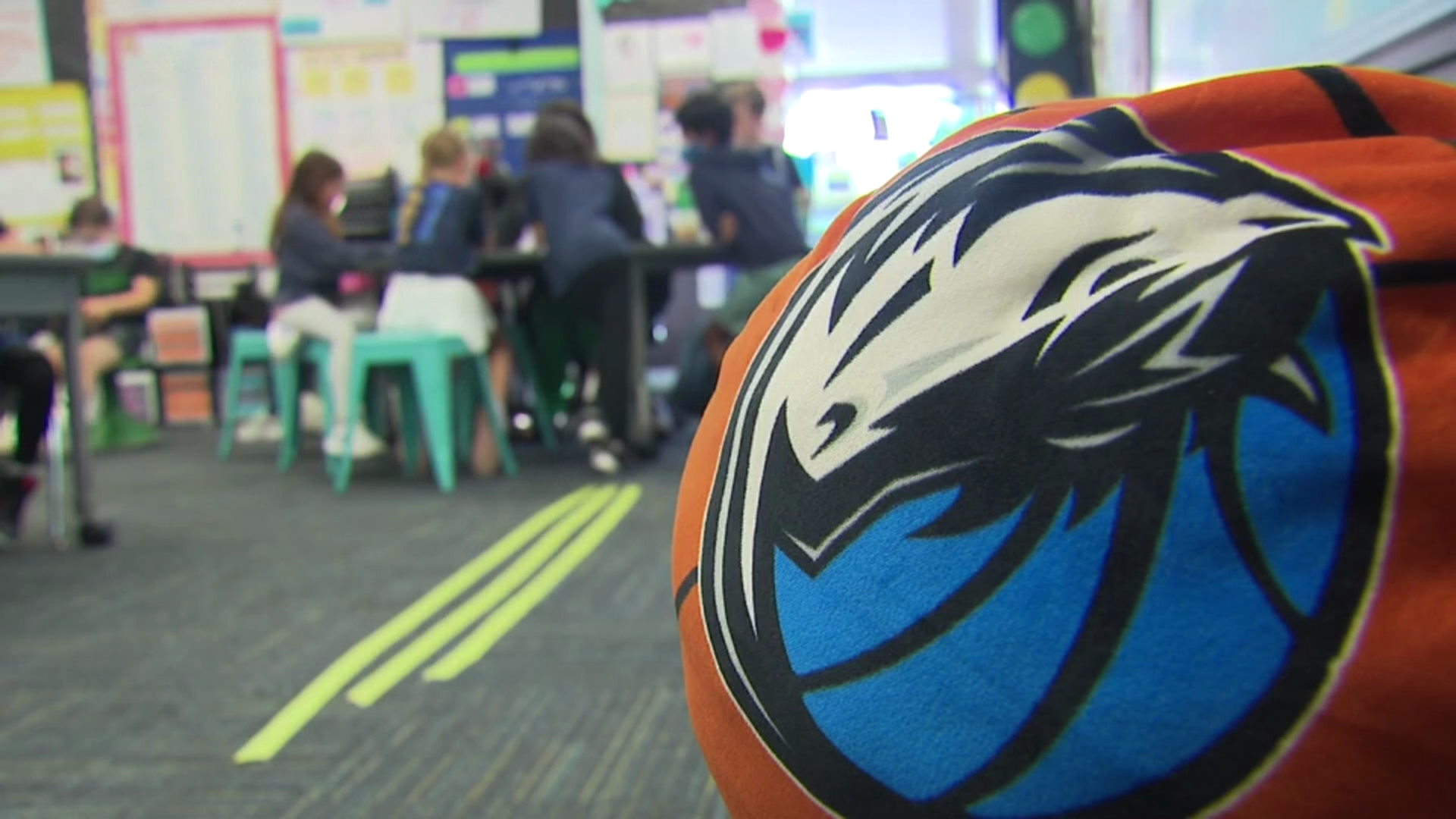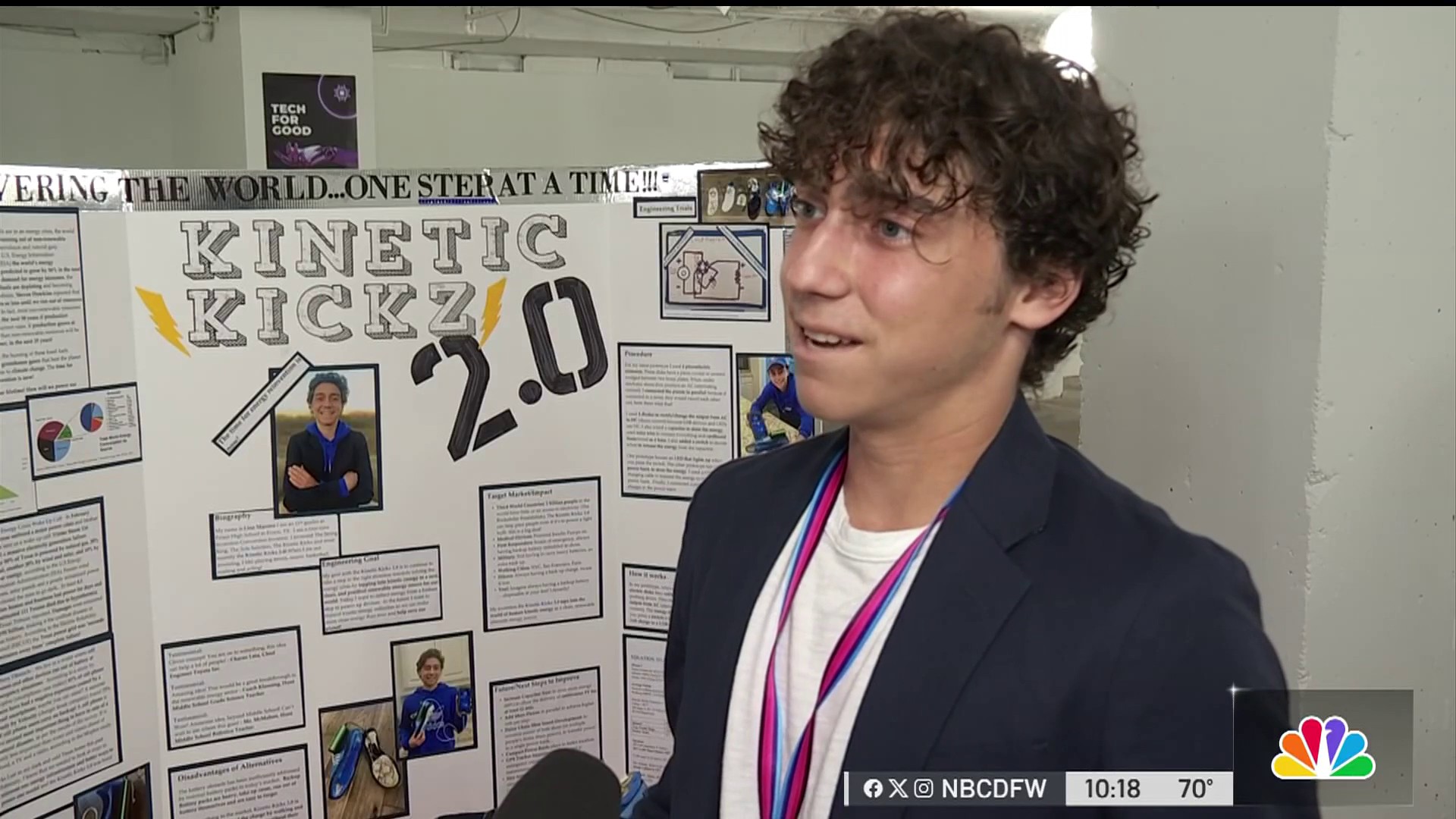It’s not every day you walk into your school gym and see an inflatable planetarium.
Britt McDougal teaches PE at Timberline Elementary School in Grapevine, but these days, leading up to the eclipse, she’s giving kids' minds a workout.
It’s called StarLab. The science department at Grapevine Colleyville ISD has been sending the inflatable planetarium campus to campus to help their youngest students, ask questions and better understand the upcoming eclipse.
"It's like you're actually in the room every second of it," one student said. "It's like you're in a rocket," said another.
Get DFW local news, weather forecasts and entertainment stories to your inbox. Sign up for NBC DFW newsletters.
The kids lie back as a computer program zooms around outer space, projecting images of the planets, sun, and stars, allowing them to get a better sense of the solar system and how every once in a while the moon and sun line up to provide an amazing sight.
"It's going to be like, maybe since everything's going to be like a lineup with the sun, it's going to be like a dark day," said Liam Hernandez.
"It was cool because we got to see the planets in real life, like zoom in, and we got to see, we got to know more about how eclipse happened," said Nicolas Perraco.
Carter In The Classroom
Focusing on unique things school districts are doing to help children succeed.
If you’re wondering why Coach McDougal is teaching this rather than, say the science teacher, it’s because the district wanted kids to really have fun with it, be inquisitive, and look at it differently than their daily class work. Ultimately enjoy the excitement of it all.
"They knew what an eclipse was, but to actually figure out by seeing like the orbit, how everything is going to line up. And I think when they realized the position of the sun on the moon, and then Earth and how that all is going to interact and be where it's going to be. I think being able to see this two weeks before is going to help," said McDougal.
While the eclipse was top of mind --- with any good engaging lesson plan --- the questions kept coming. Students want to know more about other planets and what they do.
"I also learned that like, I thought Saturn's rings are made out of gas. But they're actually made out of like rocks and ice," said Hernandez.
A little lesson for all, thanks to that 'rocket ship,' zooming them through the solar system taking the far, far away and bringing it almost within arm’s reach.



